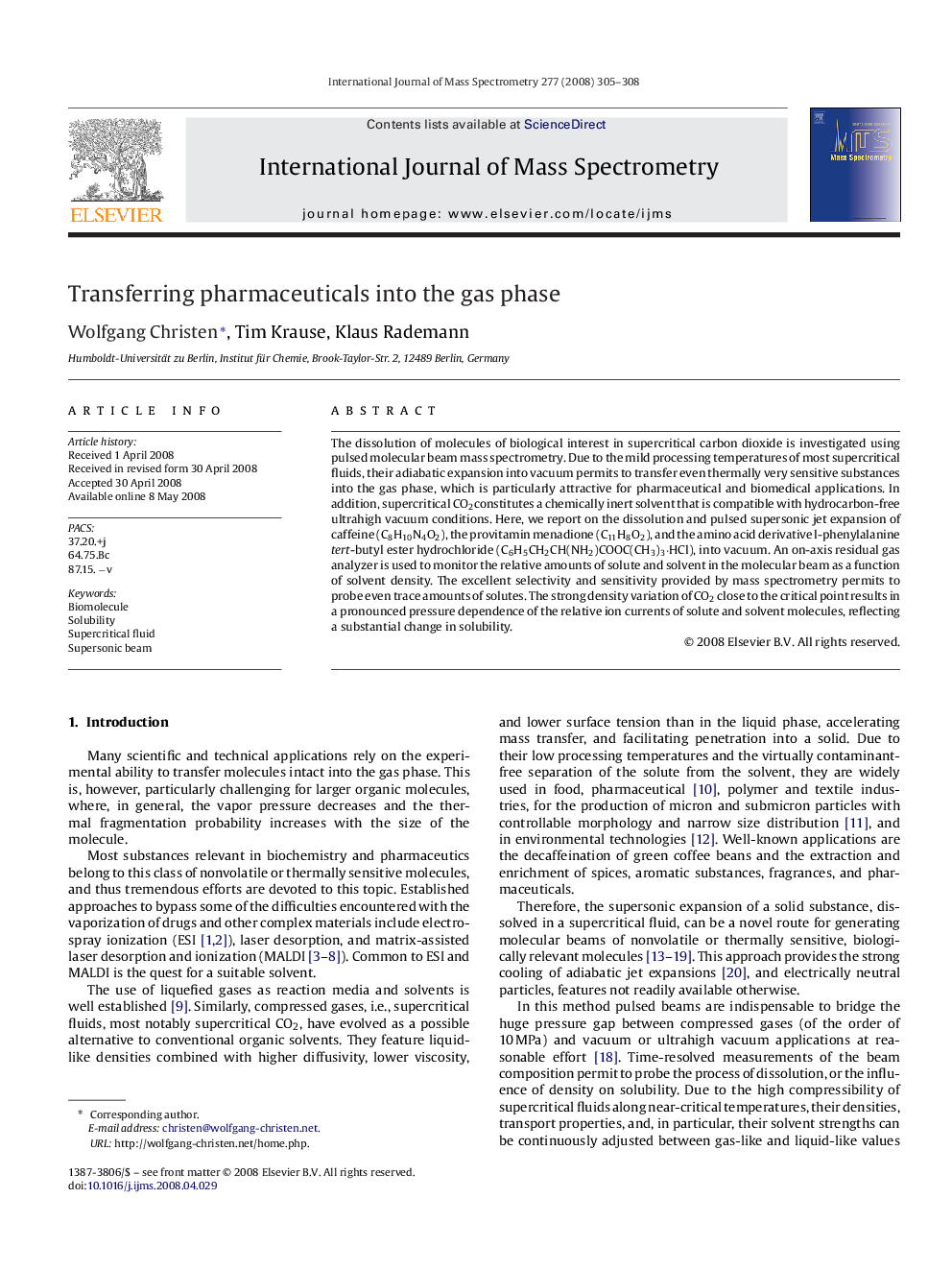| Article ID | Journal | Published Year | Pages | File Type |
|---|---|---|---|---|
| 1192479 | International Journal of Mass Spectrometry | 2008 | 4 Pages |
Abstract
The dissolution of molecules of biological interest in supercritical carbon dioxide is investigated using pulsed molecular beam mass spectrometry. Due to the mild processing temperatures of most supercritical fluids, their adiabatic expansion into vacuum permits to transfer even thermally very sensitive substances into the gas phase, which is particularly attractive for pharmaceutical and biomedical applications. In addition, supercritical CO2constitutes a chemically inert solvent that is compatible with hydrocarbon-free ultrahigh vacuum conditions. Here, we report on the dissolution and pulsed supersonic jet expansion of caffeine (C8H10N4O2), the provitamin menadione (C11H8O2), and the amino acid derivative l-phenylalanine tert-butyl ester hydrochloride (C6H5CH2CH(NH2)COOC(CH3)3â
HCl), into vacuum. An on-axis residual gas analyzer is used to monitor the relative amounts of solute and solvent in the molecular beam as a function of solvent density. The excellent selectivity and sensitivity provided by mass spectrometry permits to probe even trace amounts of solutes. The strong density variation of CO2 close to the critical point results in a pronounced pressure dependence of the relative ion currents of solute and solvent molecules, reflecting a substantial change in solubility.
Related Topics
Physical Sciences and Engineering
Chemistry
Analytical Chemistry
Authors
Wolfgang Christen, Tim Krause, Klaus Rademann,
